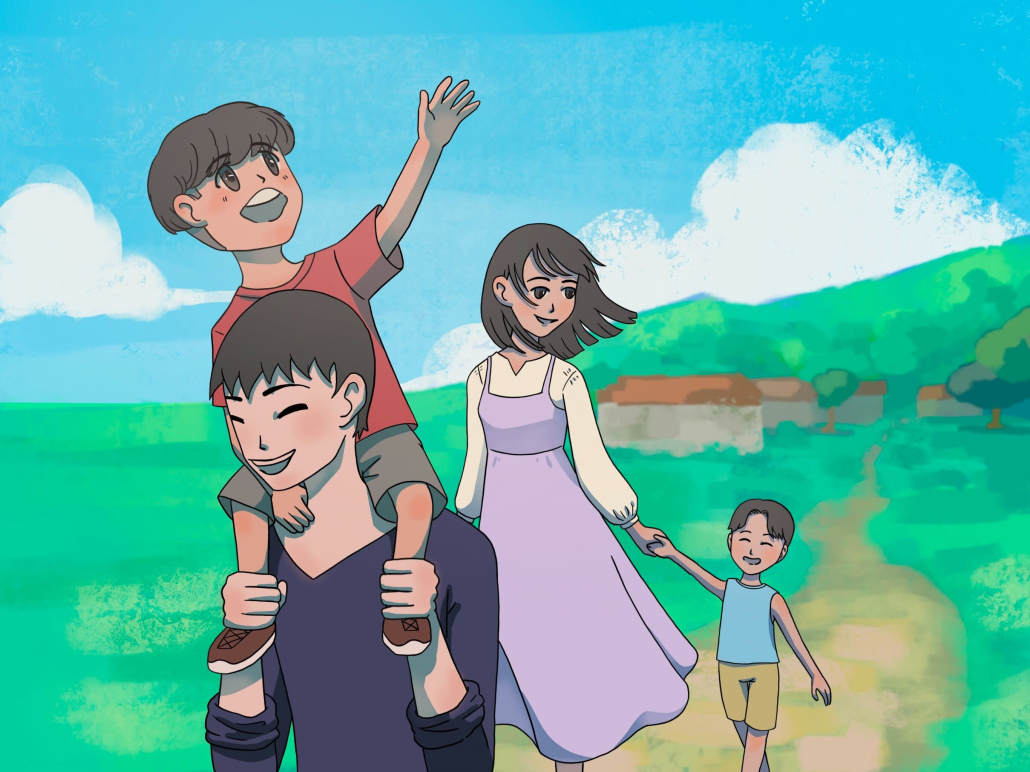Asian parenting through a different lens

Growing up in an Asian community, I’ve heard pretty much every stereotype in existence — and I can confidently say that most of them aren’t true. I’m not just talking about outrageous ones like eating dogs, which only applies to a small percentage of Asians. I’m speaking in a more general sense about Asian parenting — a topic that I consider myself certified to discuss, given that most of my friends’ and my own parents are Asian (surprise surprise!). Take my own upbringing for example.
Born and raised in Hawaii until I was eight years old, I lived on my grandma’s flower farm and spent most of my time chasing chickens and running through the fields with my brother. Sometimes, I’d walk over to my aunt’s house to watch TV and eat junk food. With Waimanalo Beach less than 10 minutes away, I spent my time basking in the sun, building sandcastles and boogie boarding the day away.
During the school year, my parents drove my brother and me to Manoa Elementary School, which I saw as just a place to be with friends. To this day, I don’t know what kind of grades I got, but considering the amount of studying I did (zilch), my report cards definitely weren’t pretty. Still, I was never scolded and, honestly, I thought I was doing pretty well.
At the time, my mom worked multiple jobs and my dad was going for his Ph.D., so they couldn’t pick my brother and me up right after school. Since a lot of people in Hawaii are Japanese, my parents decided to send us to a Japanese afterschool. Sadly, all I remember from two years in that afterschool is how to fold a paper crane — though I did become decently literate in the language at one point.
Anyhow, my parents were too busy to be the overbearing shadow that Asian parents are often portrayed as. As long as my brother and I didn’t get into trouble, all was fine. I wasn’t pressured to do well academically and I didn’t go to any tutoring centers — though, to be fair, it was partly because we couldn’t afford it.
When they did find the time, my parents always showed their affection rather openly. My mom would take my brother and me on hikes and golf cart rides around the farm. Every day after Japanese school, my dad took us to pick up my mom from work and she’d always have small candies and chocolates to give us.
Contrary to the stereotype, my dad loved spending time with us, fooling around in the backyard and taking us along as he worked on the farm. He would carry us on his shoulders and teach us to climb trees — none of that “Asian dads can’t show affection” nonsense.
Obviously, not every Asian is brought up this way and some would say that my parents are very unusual, but Asians and “Asian” parenting can’t be clumped into one category. At the end of the day, Asian parents are people too, with their own set of flaws, trauma and experiences that make up who they are — just like everyone else.
Still, like all stereotypes, there is some truth in the reputation that Asian parents get. Considering the perspective of immigrant parents, it’s understandable that some would place immense pressure on their children to do well academically and in the workforce. After sacrificing so much and growing up in more conservative cultures, many Asian immigrant parents restrict the amount of time their children spend with friends. Some forbid sleepovers and dating, and in some cases, conservative gender roles are enforced, restricting the interests that their children are allowed to explore.
Generally, Asian culture is less warm and accepting than Western counterparts, but love is still expressed — just in different ways. My mom, who immigrated to America to be with my dad, had to work multiple jobs to support my family. Oftentimes, coworkers would shun her for speaking less-than-perfect English. With her paltry income, she chose not to buy jewelry or new clothes, but to provide the resources that my brother and I needed to succeed. We celebrated the small things, and after my dad got his Ph.D., we moved to California and enjoyed a higher standard of living.
Still, to this day, my mom almost never buys anything for herself. She doesn’t have a designer purse and doesn’t wear jewelry, but enjoys ordering treats from bakeries and restaurants for my family to enjoy. Her affection is shown more openly than the stereotype of Asian parents would suggest, but the underlying theme applies to other Asian parents. Their strongest expression of love is through sacrifice.

